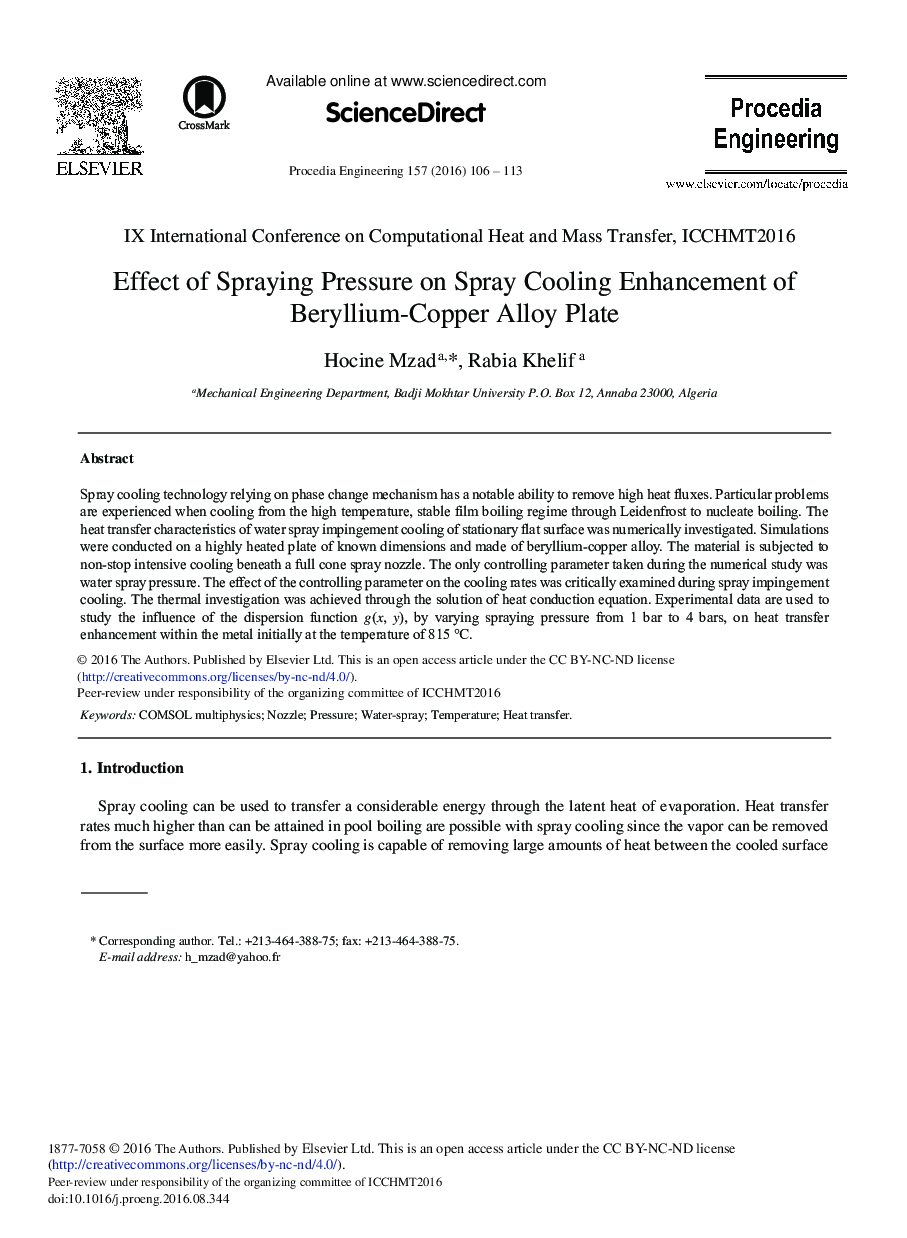| Article ID | Journal | Published Year | Pages | File Type |
|---|---|---|---|---|
| 5030314 | Procedia Engineering | 2016 | 8 Pages |
Spray cooling technology relying on phase change mechanism has a notable ability to remove high heat fluxes. Particular problems are experienced when cooling from the high temperature, stable film boiling regime through Leidenfrost to nucleate boiling. The heat transfer characteristics of water spray impingement cooling of stationary flat surface was numerically investigated. Simulations were conducted on a highly heated plate of known dimensions and made of beryllium-copper alloy. The material is subjected to non-stop intensive cooling beneath a full cone spray nozzle. The only controlling parameter taken during the numerical study was water spray pressure. The effect of the controlling parameter on the cooling rates was critically examined during spray impingement cooling. The thermal investigation was achieved through the solution of heat conduction equation. Experimental data are used to study the influence of the dispersion function g(x, y), by varying spraying pressure from 1 bar to 4 bars, on heat transfer enhancement within the metal initially at the temperature of 815 °C.
